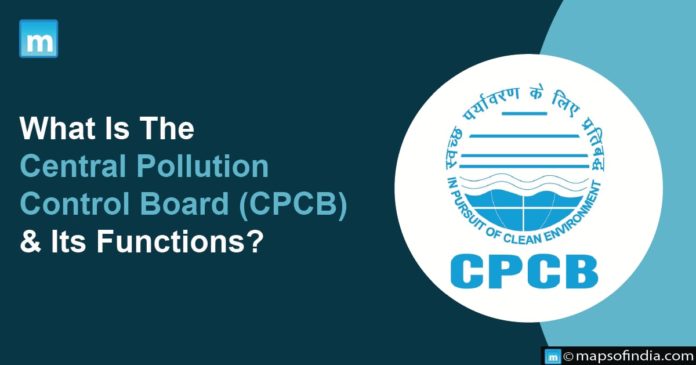The Central Pollution Control Board (CPCB) is a statutory organization that was established in the year 1974 under the Water Act of the year 1974. It is responsible for monitoring and controlling pollution in India, ensuring that the country’s air, water, and soil are kept clean and healthy for its citizens. In this article, we discuss the background, functions, and advantages of the CPCB.
Background
Before CPCB was established, state governments were responsible for controlling pollution. However, with the growing concern for the environment and the need for a centralized authority to deal with the problem, the CPCB was created. It is a statutory organization that works under the Ministry of Environment, Forests and Climate Change (MoEFCC) and is headquartered in Delhi. The Board has regional offices in different parts of the country to carry out its functions effectively.
Functions
The CPCB has several functions aimed at monitoring and controlling pollution in India. Some of the key tasks of the CPCB are:
-
Setting standards
The CPCB sets standards for air, water, and soil pollutants. These standards are used as a benchmark for industries and other sources of pollution to ensure that they meet the required levels.
-
Monitoring
The CPCB monitors pollution levels in different parts of the country. It has a network of monitoring stations that collect air, water, and soil quality data.
-
Enforcement
The CPCB has the power to enforce pollution control laws and take action against polluters. It can issue notices, levy fines, and even shut down industries that violate pollution control norms.
-
Research
The CPCB conducts research and studies to develop new techniques for pollution control. It also collects and disseminates information on pollution control measures to different stakeholders.
-
Capacity building
The CPCB provides training and capacity-building programs to stakeholders, such as industries, regulators, and the public.
Advantages
The CPCB has several advantages, making it an essential organization for pollution control in India. Some of these advantages are:
-
Centralized authority
The CPCB provides a centralized authority for pollution control in India. This ensures consistency in the approach toward pollution control across the country.
-
Standards
The CPCB sets standards for pollutants in air, water, and soil. These standards are based on scientific research and are regularly updated to reflect the changing environmental conditions. This ensures that industries and other sources of pollution are held accountable for their actions.
-
Monitoring
The CPCB has a network of monitoring stations that collect air, water, and soil quality data. This data is used to identify areas that need immediate attention and develop long-term pollution control strategies.
-
Enforcement
The CPCB has the power to enforce pollution control laws and take action against polluters. This ensures that industries and other sources of pollution are held accountable for their actions.
-
Research
The CPCB conducts research and studies to develop new techniques for pollution control. This helps in identifying the most effective and efficient pollution control measures.




